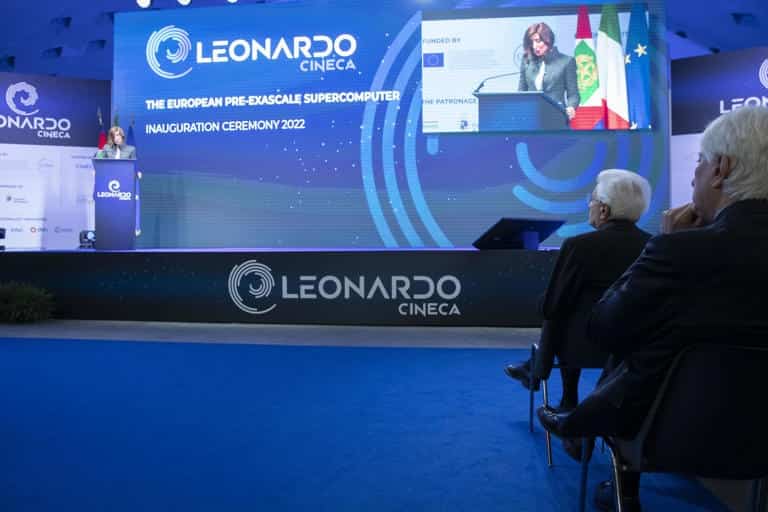PET biorecycling – Food packaging 03-06-2023 - Arhive
PET biorecycling – Food packaging
-UPM Biochemicals and Selenis, a member of the IMG Group and a producer of specialty polyester resins, have formed a strategic partnership to develop a sustainable resin called polyethylene terephthalate glycol (PETG)
The aim of this collaboration, announced on June 1st, is to increase the availability of sustainable material choices for packaging applications.
PETG is a transparent and FDA-approved material widely used in various applications, including heat shrink sleeves, cosmetics and personal care packaging, and durable goods such as bulk dispensers.
Under this partnership, UPM will supply Selenis with biobased mono-ethylene glycol (Bio-MEG) known as UPM BioPura. This Bio-MEG will be used by Selenis to partially produce PETG using sustainably sourced forest biomass. The biomass originates from certified hardwood in the Leuna region of Germany, where UPM is constructing the world’s first industrial-scale biorefinery that will utilize woody biomass as a feedstock for next-generation biochemicals. PET biorecycling – Food packaging
UPM is actively collaborating with partners like Selenis to develop sustainable applications and products based on the biochemicals produced at the Leuna facility.
Michael Duetsch, Vice President of Biochemicals at UPM, stated, “Selenis pursues a strategy to continuously reduce the CO2 footprint of its products – partnerships like ours are at the heart of a greener, more sustainable chemistry.”
Both companies share a vision of supporting the packaging industry in reducing its carbon footprint and decreasing its reliance on virgin fossil materials. The BioPETG being developed will serve as a drop-in replacement for conventionally produced PETG.
Duetsch added, “We will work with Selenis to deliver outstanding solutions for their customers, enabling them to innovate towards sustainable packaging solutions with a significantly reduced greenhouse gas footprint. As the packaging industry strives for a more environmentally friendly future, incorporating bio-based materials like UPM BioPura alongside an increasing share of recycled materials will be essential.”
Selenis has developed technology that enables the upcycling of plastic waste into new fully recyclable polymers, thereby replacing fossil-fuel feedstocks with recycled polyester raw materials. By incorporating biobased or recycled content in their products, Selenis Converters and brand owners can reduce their carbon footprint without compromising performance.
Marta Matos Gil, Chief Sustainability Officer at Selenis, highlighted the importance of circularity for industries such as packaging and cosmetics, where brand owners prioritize sustainable practices. Selenis is also investing in solar energy to further reduce carbon emissions in the manufacturing process. PET biorecycling – Food packaging
Matos Gil concluded, “As we take steps towards becoming a regenerative company, developing products that meet sustainable standards in recyclability, eco-resource efficiency, and eco-friendly compositions to improve their circularity is vital. Our new partnership with UPM is illustrative of how we are jointly working across the value chain to create tangible solutions that support the advancement of a circular economy and considerably reduce plastic waste.”
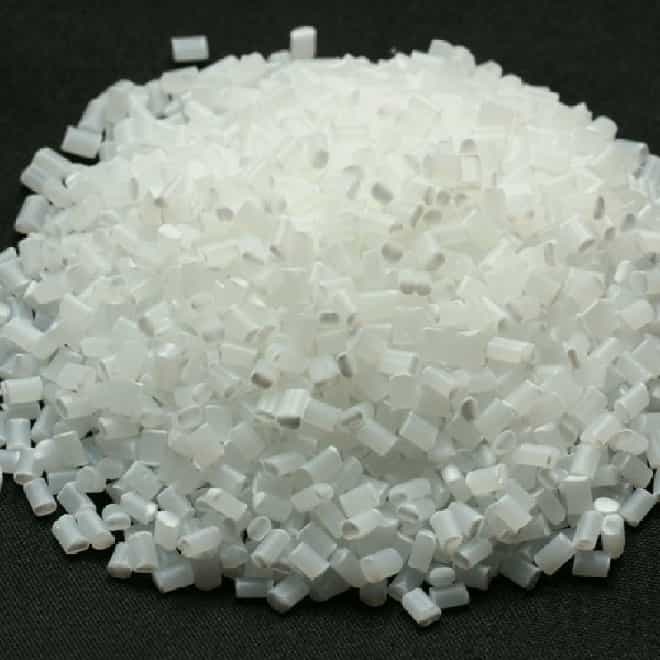
Credit : Selenis
-Carbios and Indorama Ventures have reaffirmed their partnership to establish a groundbreaking PET biorecycling plant in France
The companies have signed a non-binding Memorandum of Understanding (MOU) to form a Joint Venture for this purpose.
Indorama Ventures intends to allocate approximately €110 million in equity and non-convertible loan financing for the Joint Venture, pending final engineering documentation and economic feasibility studies. Both parties are committed to implementing the project and aim to finalize contract documentation by the end of 2023.
Upon successful operation of the initial plant in France, Indorama Ventures has expressed its intention to potentially extend the technology to other PET sites for future projects.
According to the agreement, Carbios, which applied for plant permitting in December 2022, will acquire a 13-hectare land area from Indorama Ventures’ existing PET plant at Longlaville. Carbios expects to receive permits by Q3 2023, enabling the commencement of construction by the end of 2023 and targeted commissioning in 2025. The land has the potential to accommodate double the capacity of the plant. Indorama Ventures will ensure the complete repolymerization of the output, and both companies will collaborate to secure a reliable supply of feedstock. PET biorecycling – Food packaging
The total capital investment for the new plant is now estimated to be approximately €230 million, considering recent inflationary impacts. The project costs will be financed by funds provided by Indorama Ventures, subsidies from the French State and Grand-Est Region, and equity capitalization of the Joint Venture by Carbios. Carbios plans to finance part of its equity injection through a portion of its current cash position (approximately €86 million as of April 30, 2023). The remaining equity injection will be financed through the most suitable solution and timeline based on market conditions.
This project aligns with Indorama Ventures’ Vision 2030 initiative to strengthen its position as a global sustainable chemical company. The company aims to spend $1.5 billion to increase its recycling capacity to 50 billion PET bottles per year by 2025 and 100 billion bottles per year by 2030. In pursuit of these goals, Indorama Ventures, the largest producer of recycled PET resin for beverage bottles, is investing in new recycling technologies, including advanced recycling, and expanding its global network of mechanical recycling sites, including two in France.
Carbios has developed an innovative enzymatic depolymerization technology that enables efficient and solvent-free recycling of PET plastic and textile waste into products with properties similar to virgin materials, with the ultimate goal of achieving true circularity. Carbios aims to become a leading provider of advanced PET recycling technology by 2035. After successful operations at its demonstration plant in Clermont-Ferrand, France, Carbios has been collaborating with Indorama Ventures for over a year to assess the commercial and technical feasibility of the technology.
The industrial-scale enzymatic PET recycling plant at Longlaville will have a capacity to process approximately 50,000 tons of post-consumer PET waste annually, including non-recyclable mechanically waste, equivalent to 2 billion PET colored bottles or 2.5 billion PET trays. PET biorecycling – Food packaging
Yash Lohia, Chairman of the ESG Council at Indorama Ventures, expressed confidence in the technical soundness of Carbios’ technology and its potential as a valuable addition to PET plastics and fibers’ circular economy solutions. He mentioned the possibility of expanding Carbios’ technology to other global sites following the success of the Longlaville Project.
Emmanuel Ladent, CEO of Carbios, considered the partnership with Indorama Ventures and the establishment of the PET biorecycling plant as a significant milestone. He emphasized Carbios’ commitment to promoting the circular economy for plastics and textiles, stating that the Longlaville plant serves as a springboard for their worldwide industrial and commercial deployment, leading to leadership in advanced PET recycling.
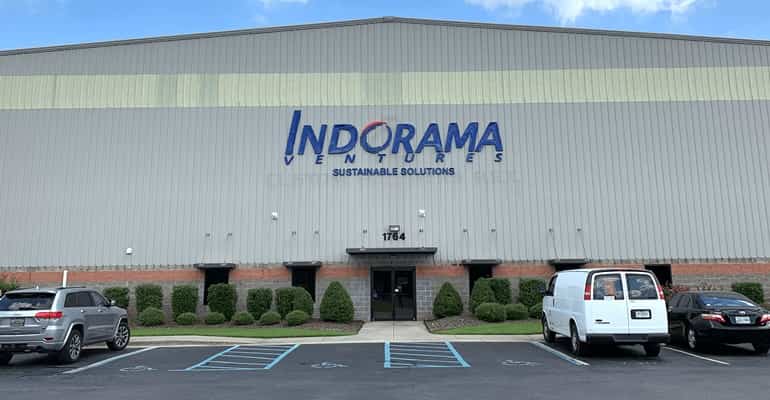
-Recycling: what you can and can’t recycle and why it’s so confusing
When it comes to recycling are you a wishcycler? No, I didn’t know what this term meant until recently either – apparently it’s when people try to recycle items that should be thrown away instead. And the government are trying to crack down on it.
New rules will ask people to stop “over-recycling” and to be more careful about what they put in their recycling bins. This is to reduce the amount of dirty waste that goes to processing centres and landfills.
Many commonly recycled items either need specialist recycling treatment or are so contaminated that they cannot be processed properly. Think toothpaste tubes, takeaway packaging and juice cartons. So if you’re sticking these items in the recycling bin or box, you might want to rethink how you’re disposing of them.
Three years ago the UK government outlined its goal of recycling – setting the target for 65% of all household waste to be recycled by 2035 – with no more than 10% of this waste ending up in landfill. PET biorecycling – Food packaging
But a recent survey shows that 80% of UK households are “still unclear” on how to recycle effectively – does it need washing out, can I flatten items and what if the cardboard gets wet? (Wet cardboard is a no on the recycling front I’m afraid).
It’s no wonder that many admit it’s easier just to throw something in the bin instead of working out if it can be recycled.
Waste not
My team and I are researching how new bio-based and biodegradable plastics can contribute to a more circular economy (this is where items are reused and not sent to landfill or shipped abroad. While huge strides are being made in this area, we are still some way off all packaging being made in this way in a cost-effective manner. And so for now recycling is the next best option.
So then why the confusion about recycling? One of the main issues is there are differences in how recycling waste is collected across the UK – this can even be the case from one street to another.
For anyone confused by recycling rules, the advice is always “check with your local authority”. Households should have been sent a leaflet that explains what can be recycled and how. But if you’ve thrown yours away – or perhaps recycled it – the information should also be on your local authorities’ website.
Typically though, plastic containers such as bottles, food trays, margarine tubs and yoghurt pots are readily recycled. So too is aluminium foil, cans, glass bottles and jars. But again, if you want to optimise your council’s existing recycling infrastructure check your local collection guides. PET biorecycling – Food packaging
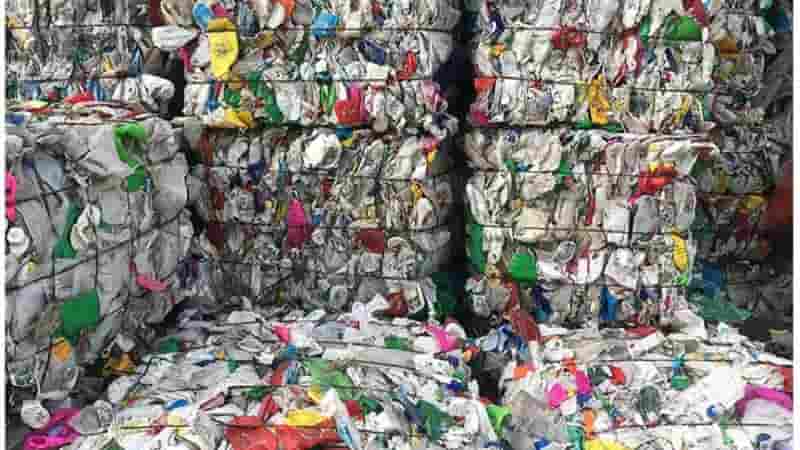
-Asda has made an announcement regarding its initiative to recycle over 200 million pieces of plastic annually by replacing coloured milk bottle tops
The supermarket chain will be switching from coloured caps to clear caps on all its own label fresh milk products, including skimmed, semi-skimmed, whole, organic, and filtered milk.
This change will enable the recycling of 268 tonnes of High-Density Polythene (rHDPE), which can then be used to create new milk bottles. It is a part of Asda’s larger plan to enhance the recyclability of its food packaging. As a result of this transition, approximately 207 million plastic milk caps will be recycled each year.
The decision to utilize natural-coloured caps ensures that they can be easily recycled into food-grade packaging. Unlike green, blue, and red caps, the clear caps are capable of being recycled and reintegrated into food packaging. Additionally, these clear bottle caps contain 30% recycled material. PET biorecycling – Food packaging
In collaboration with Arla, the largest dairy cooperative in the UK, Asda will implement this change across its stores from June. The switch will also affect Yeo Valley fresh milk products. Customers will still be able to differentiate between various types of milk through the coloured labelling on the bottles.
Fiona Dobson, Asda’s Lead Packaging Strategy and Innovation Manager, emphasized the supermarket’s commitment to reducing its environmental impact. She stated that the introduction of clear caps on milk bottles is part of a broader initiative to achieve 100% recyclable packaging and increase the use of recycled content in all products by 2025.
Catriona Mantle, Head of Milk, Organic, and Yogurt at Arla, expressed their dedication to sustainability and acknowledged the significant role packaging plays in this endeavor. Arla is continuously exploring ways to minimize their impact, and from early June 2023, they will introduce natural clear caps across their product range. While their coloured caps are already fully recyclable and contain 30% recycled material, the switch to clear caps will facilitate easy recycling into food-grade packaging.
Jayne Paramor, Strategic Technical Manager – Plastics at WRAP, praised Asda’s decision to remove pigments from milk bottle caps. Clear, colourless plastics have a higher demand as recycled material, enabling the production of valuable recycled plastics and creating markets for these reprocessed materials. This change not only enhances the recyclability of the UK’s milk bottles, which are already widely recycled into new milk bottles, but also exemplifies the circular economy for plastics in action. It represents a significant step towards developing a circular economy for plastics.
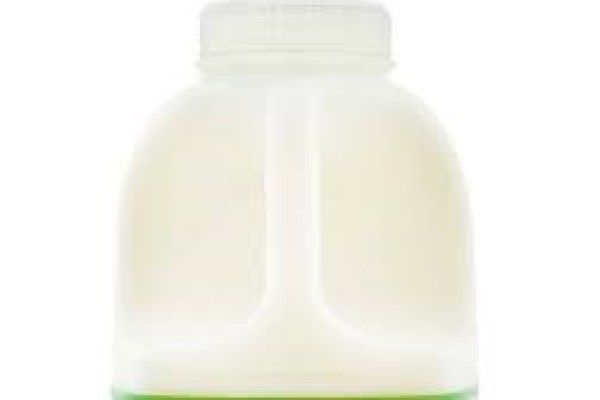
-Is the net closing in on chemicals used in food packaging?
Food companies remain reticent to talk about possible issues in their packaging supply chain.
ow much do we know about food contact chemicals used in packaging and what is being done to alleviate potential risks? PET biorecycling – Food packaging
This time last year a new database containing thousands of food contact chemicals was launched. Some of them, like bisphenols, phthalates and PFAS (per and poly-fluorinated alkyl substances), are well studied, but there were also hundreds for which very little is known about their use and possible migration into food.
Such data are “critical for determining human heath risks” the scientists from Switzerland-based non-profit the Food Packaging Forum (FPF) noted. There was talk of “potential harm” and the gaps in understanding their impacts. PET biorecycling – Food packaging
Research the forum is about to publish alongside experts in the US shows how “reusing and recycling plastics can also lead to unintended negative impacts, because hazardous chemicals, like endocrine disrupters and carcinogens, can be released during reuse and accumulate during recycling”. It adds to growing concerns about the cocktail of chemicals in packaging that neither consumers nor food manufacturers appear to know much about.
“There are so few people who understand this issue,” explains FPF managing director Jane Muncke. “People get climate now and I guess they get biodiversity but chemicals is a whole different beast. Just saying the word scares people off.”
Food companies certainly remain reticent to talk about possible issues in their packaging supply chains. Just Food approached a number of major manufacturers but only two – Nestlé and General Mills – offered any comment on the topic (they follow the rules to ensure food is safe). PET biorecycling – Food packaging
Industry body FoodDrinkEurope (FDE) says its members “comply with all EU regulations on the safety of food contact materials, using only food contact materials that have been assessed as safe to use”.
But regulation requires certainty and there is little of that when it comes to chemicals. Revisions to some relevant regulations (which date back decades) are underway across the world but these are complex and NGOs are concerned by both delays and their scope. So should food companies be worried? PET biorecycling – Food packaging
In a word: yes. A major scare story about chemicals is the last thing they need, not least because it could also damage their attempts to integrate more recycled content into their plastic packaging. Indeed, phrases such as ‘toxic recycling’ are increasingly being used by NGOs as attention turns to the possibility that recycling plastics could actually bring more chemical risks.
In 2021, for example, the US Environment Protection Agency warned that “the circular nature of the recycling economy may have the potential to introduce additional chemicals into products”. In Europe there are similar concerns that policymakers are driving circularity for packaging without a framework for the chemicals and additives.
Chemical safety is “often ignored” in solutions to reuse or recycle plastic, or to switch to other materials, noted 33 scientists in a ‘consensus statement’ in the journal Environmental Health in 2021. “Recycling processes may increase the levels of chemicals found in, and therefore migrating from, food packaging,” said co-author Olwenn Martin from Brunel University London. “This aspect needs to be considered at the design stage for solutions to be truly sustainable.” PET biorecycling – Food packaging
Toxic recycling
Start to dig, as scientists increasingly are, and solutions designed to reduce the impact of packaging start to come unstuck when chemicals are considered. “In discussions of the circular economy it’s often forgotten that it only truly works as intended when we weed out the toxics first,” Heather Leslie, an ecotoxicologist who previously worked at the Institute for Environmental Studies at University Amsterdam said last year.
This left environmental NGOs in a predicament: many were wary of wading into this debate too quickly, for fear it could derail momentum around reduction, re-use and recycling of plastic packaging. But food companies, packaging firms and recyclers should know that the gloves are now off. PET biorecycling – Food packaging
In September, Zero Waste Europe together with the Health and Environment Alliance, CHEM Trust and ClientEarth launched a new campaign. “Harmful chemicals in recycled food contact materials can put the circular economy and our health at risk,” they tweeted, with an infographic entitled ‘Misconceptions about food contact materials’. Their use of the phrase “toxic recycling” was deliberately emotive.
In Europe, some 8,000 chemicals can be used in food packaging and other food contact materials (FCMs). Chemicals are added to packaging to give it certain properties like durability and stiffness but some migrate into the food. “We’re constantly demanding more from our food packaging, more durability, more functionality and more sustainability and this means more complex manufacturing processes,” FPF’s Muncke wrote recently.
A technical report dedicated to the topic of chemicals in plastic, published by the UN Environment Programme (UNEP) last month, highlighted the “compelling scientific evidence” that shows chemicals of concern in a range of sectors and product value chains, including food contact materials like packaging. PET biorecycling – Food packaging
Globally, more than 13,000 chemicals are associated with plastics and plastic production across a wide range of applications, of which over 3,200 monomers, additives, processing aids and non-intentionally added substances are of potential concern due to their hazardous properties, the authors wrote. PET biorecycling – Food packaging
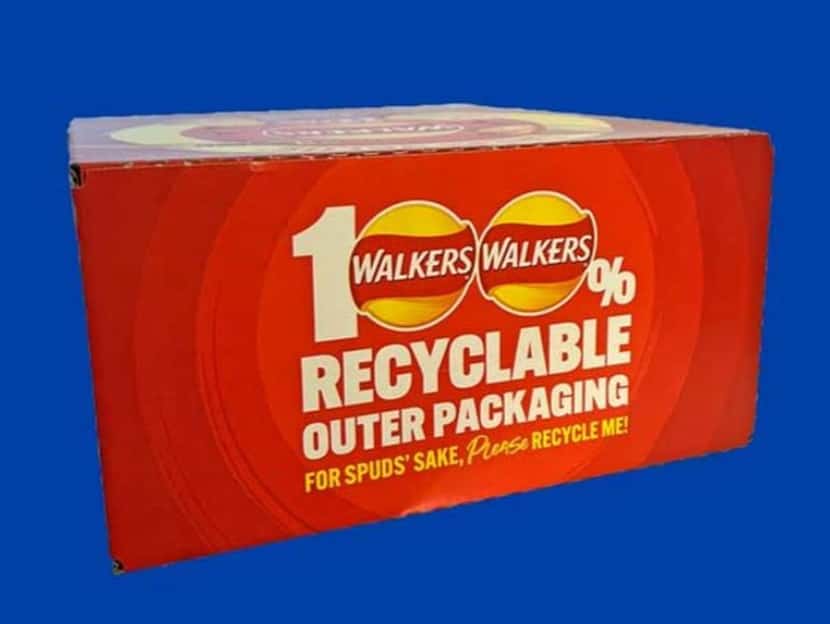
-Nexam progresses in efforts to boost rPET content in products
The company has also received its first official production order for its thermoformed food packaging.
Nexam Chemicals has achieved a new milestone in its efforts to increase the recycled polyethylene terephthalate (rPET) content in its products.
The company specialises in developing solutions that improve the properties and performance of plastics. It invents, develops, manufactures and sells additives to various plastics companies across the globe. PET biorecycling – Food packaging
Under the new milestone, Nexam has succeeded in using their additive technology to increase the overall amount of rPET in its offerings.
The solution is now fully developed and approved for technical use.
Furthermore, the company has secured its first production order for thermoformed food packaging. The order has an estimated value of approximately Skr0.5m.
Nexam CEO Ronnie Törnqvist said: “We see an increasing interest in our products in this type of application and we have several ongoing projects in Europe.
“This type of food packaging, together with our additives in recycled PET for fibre, are two areas with great potential.” PET biorecycling – Food packaging
Since 2022, the company has been working on a project in collaboration with an Israel-based food packaging manufacturer to boost the amount of rPET in its products.
The company said that the additives help in restoring and improving some of the base properties of the plastics, which are often lost during the recycling process.
In order to avoid this, the company uses its reactive recycling method to upcycle rPET content, instead of using traditional methods. PET biorecycling – Food packaging
Törnqvist added: “Our additives open the door for the majority of actors to use recycled plastic at a low cost in the manufacture of products that are aimed at areas with higher demands on both quality and durability.
“In this case, food packaging in the food industry.”
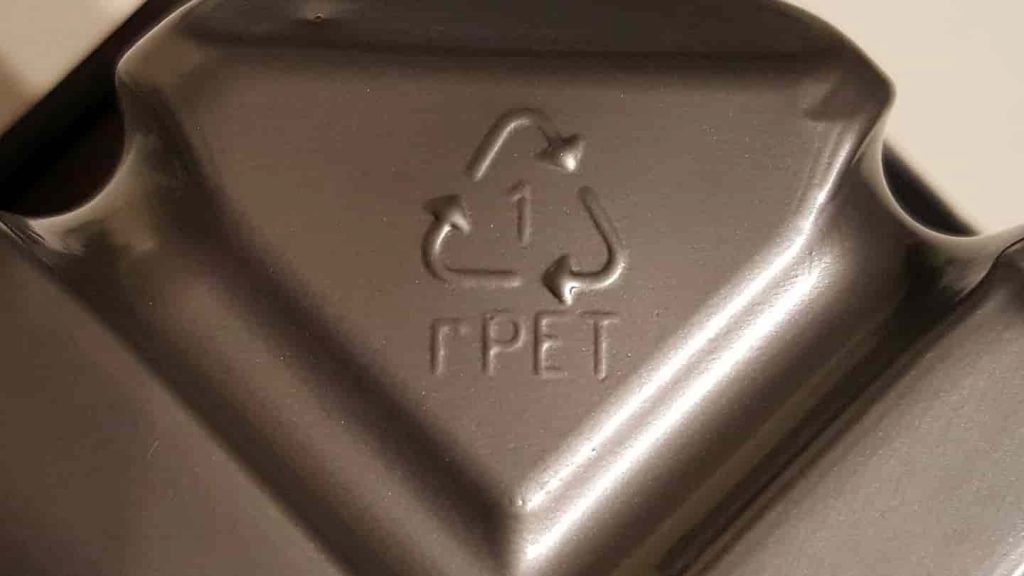
-Italy is embarking on a groundbreaking project in the field of nuclear fusion with the establishment of a state-of-the-art supercomputer
An impressive investment of 50 million euros will be allocated over a span of five years to construct this cutting-edge infrastructure.
The collaborative efforts of Enea, Eurofusion, and Cineca have culminated in a significant agreement to oversee the development of this remarkable supercomputer.
Situated within the Bologna Technopole, this facility will join the ranks of other computational structures dedicated to weather and climate forecasting, as well as the renowned Leonardo supercomputer.
With a staggering computational power of 47 million billion operations per second, the supercomputer will revolutionize research in fusion energy.
Its primary applications will encompass numerical simulations of plasma physics and the structural analysis of advanced materials employed in nuclear fusion.
The three participating entities have aptly described this endeavor as a “technological challenge” that holds the potential to transcend our reliance on fossil fuels and combat the pressing issue of climate change. PET biorecycling – Food packaging
